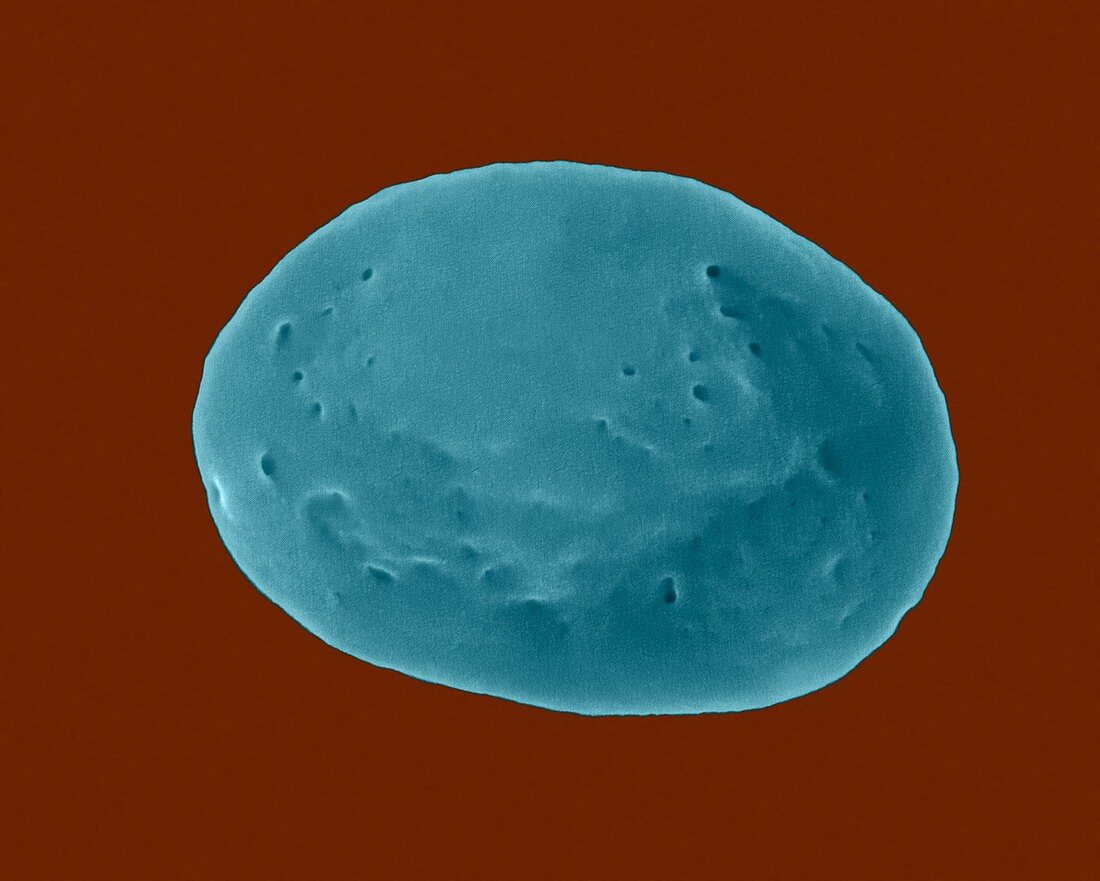Non-activated platelet and open canalicular system, SEM
Bildnummer 12298038

| Non-activated platelet with channels of the open canalicular system (OCS), coloured scanning electron micrograph (SEM). Platelets are blood cell fragments that play an essential role in blood clotting and wound repair, and can also activate certain immune responses. They are formed in the red bone marrow, lungs, and spleen by fragmentation of very large cells known as megakaryocytes. Platelets in the blood are small oval disks and are termed non-activated platelets or thrombocytes. They are the body's first line of defence against excessive blood loss. When an injury such as a cut is sustained, platelets (now known as activated platelets) change their shape, become sticky and build up on a vessel wall to form a plug. They are also involved in the secretion of a chemical platelet factors which helps produce threads of fibrin. Bloods cells collect in the entangled fibrin and platelet mass forming a blood clot at the site. Magnification: x5, 000 when | |
| Lizenzart: | Lizenzpflichtig |
| Credit: | Science Photo Library / DENNIS KUNKEL MICROSCOPY |
| Bildgröße: | 3302 px × 2646 px |
| Modell-Rechte: | nicht erforderlich |
| Eigentums-Rechte: | nicht erforderlich |
| Restrictions: | - |
Preise für dieses Bild ab 15 €
Universitäten & Organisationen
(Informationsmaterial Digital, Informationsmaterial Print, Lehrmaterial Digital etc.)
ab 15 €
Redaktionell
(Bücher, Bücher: Sach- und Fachliteratur, Digitale Medien (redaktionell) etc.)
ab 30 €
Werbung
(Anzeigen, Aussenwerbung, Digitale Medien, Fernsehwerbung, Karten, Werbemittel, Zeitschriften etc.)
ab 55 €
Handelsprodukte
(bedruckte Textilie, Kalender, Postkarte, Grußkarte, Verpackung etc.)
ab 75 €
Pauschalpreise
Rechtepakete für die unbeschränkte Bildnutzung in Print oder Online
ab 495 €
